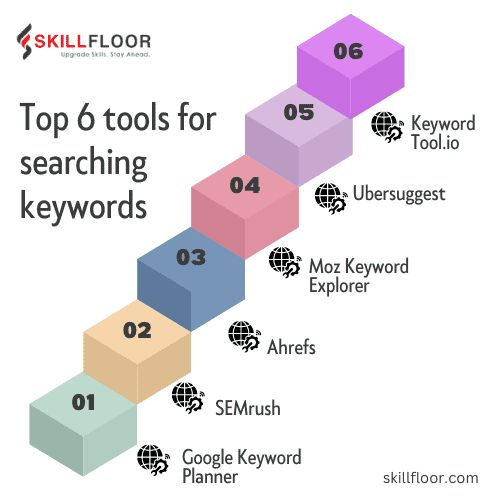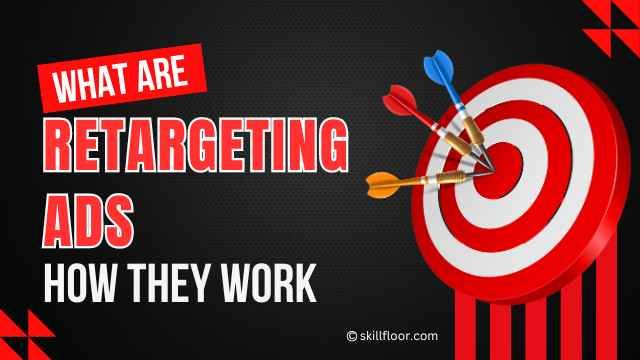How to Find the Right Keywords for Your Business
Find the practical tips for identifying effective keywords that align with your business goals and enhance your SEO efforts.

Identifying the right keyword for business is the best-performing essential phase in the field of digital marketing. To identify pertinent phrases, extensive market research is conducted first, examining customer behavior, industry trends, and competitor analysis. Businesses can find high-volume keywords related to their specialty by using tools like Ahrefs, SEMrush, and Google Keyword Planner. To attract the correct audience, these keywords should not only represent the brand's offers but also match user intent.
In addition, taking into account long-tail keywords in addition to more general terms might improve the likelihood of connecting with potential clients at different phases of the sales funnel. Following the identification process, these keywords ought to be easily included in any digital material produced by the company, such as blogs, social media postings, website copy, and ad campaigns, in order to maximize visibility on all digital media. To maximize their digital marketing efforts and propel business growth, firms must continuously monitor and analyze keyword success. This allows them to adjust their strategy in response to changing trends and increasing customer preferences.
Understanding Keywords
In digital marketing, keywords are words or phrases that are important. They improve the online visibility of businesses. Based on what customers are looking for and what the company provides, the appropriate keywords are carefully selected for a firm.Businesses may increase their search engine ranking by utilizing these keywords in their advertisements, social media posts, and websites. This draws in additional customers who might be considering the offerings of the company.
Types of keywords used for finding the right keywords
| Category | Short-Tail Keywords | Long-Tail Keywords |
|---|---|---|
| Length | 1–3 words | 4 or more words |
| Search Volume | High | Low to Medium |
| Competition | High | Low to Medium |
| Specificity | Low | High |
| Search Intent | Broad | Specific |
| Example | "Shoes" | "Best running shoes for men" |
| Usage | Top of the funnel | Middle to bottom of the funnel |
Utilizing Keyword research tool
Digital marketers need tools for keyword research. They help businesses identify the appropriate terms that consumers use when searching online. One may learn what people are searching for and how competitive certain keywords are by using tools such as Ahrefs, SEMrush, Google Keyword Planner, and so on. Businesses can produce content that appeals to their audience by utilizing these resources. Additionally, they may monitor the performance of the keywords they have selected over time, which makes it simpler to modify their tactics for improved outcomes. In the end, these tools help businesses attract more of the right people to their websites and improve their online visibility.

Analyzing search volume and competition
In digital marketing, knowing search volume and competition is essential. A keyword's popularity can be derived from its search volume, which shows us how frequently users look for it. High search volume indicates more searches, while low volume indicates fewer. Competition reveals the number of other companies that utilize the same keyword. Because there are fewer companies vying for that keyword, it is easier to rank higher in search results when there is little competition. Businesses can maximize their chances of efficiently reaching their target audience by selecting keywords that are popular but not overly competitive by assessing these two variables.
Identifying Target Audience Intent
In digital marketing, it is essential to understand the intentions of your target audience. This entails understanding what users are searching for when they input specific terms into search engines. Three primary categories exist for keywords: transactional (used when a user intends to make a purchase or take action), navigational (used when a user is looking for a specific website), and informative (used when users seek information). To make sure your material is relevant to the user's search, it's critical to match your selected keywords with their intent. By increasing the likelihood that the right people will view your content, this alignment will eventually improve engagement and conversion rates.
On-page optimization techniques
On-page optimization techniques play a vital role in improving a website's visibility and relevance in search engine results.
Title tags and meta descriptions:
-
Title tags summarize the content of a webpage in a concise manner.
-
Meta descriptions provide a brief overview of the page's content and encourage clicks from search engine users.
Header tags and content optimization:
-
Header tags (H1, H2, etc.) structure the content hierarchy and improve readability.
-
Optimizing content with relevant keywords enhances its relevance to both users and search engines.
URL structure:
-
Clear and logical URL structures improve the user experience and aid search engine crawling.
-
Incorporating keywords into URLs helps convey the page's topic and enhances its visibility in search results.
Off-page optimization strategies
Backlink anchor text:
-
Backlink anchor text refers to the clickable text used in a hyperlink pointing to a webpage.
-
It should be descriptive and relevant to the linked page's content to provide context to both users and search engines.
Social media and content marketing:
-
Social media platforms serve as valuable channels for promoting content and engaging with audiences.
-
Content marketing involves creating and sharing relevant content to attract and retain a target audience, driving engagement and brand awareness.
Tracking keyword performance
A good digital marketing strategy must include both monitoring and adaptation. First, monitoring keyword performance entails evaluating selected keywords' ability to generate traffic and interaction regularly. Measuring the success of a keyword involves keeping an eye on indicators like search traffic, click-through rates, and rankings on search engine results pages (SERPs). Second, examining traffic and conversions offers insightful information about user behavior and the effectiveness of marketing campaigns. Through a careful examination of user demographics, website traffic sources, and conversion rates, marketers can spot trends and opportunities for enhancement. Finally, fine-tuning keyword selection based on performance data and changing market trends is a necessary component of adjusting keyword strategy based on insights.
It's essential to summarize the main ideas raised throughout the conversation about keywords in business. First, we stressed how important it is to comprehend the user meaning behind keywords in order to maintain consistency between search terms and content offerings. Second, the differences between long-tail and short-tail keywords were explained, highlighting the significance of selecting keywords that combine specificity and popularity in an equal measure. Thirdly, we looked at how to use keyword research tools to find pertinent keywords and successfully optimize digital marketing campaigns. It is vital to continue conducting keyword research and optimization in the future. Consumer behavior and market trends are ever-changing in today's dynamic digital marketplace, which means that keyword strategy must be continuously adjusted to stay relevant and competitive.
In the end, companies who want to succeed with keywords must continue to be aggressive and flexible. To effectively modify and optimize keyword strategies, keep an eye on competition strategies, remain up to date on industry developments, and assess keyword performance on a regular basis. Leverage data-driven insights, emphasize user experience, and embrace experimentation to fully realize the potential of keywords in boosting business expansion and accomplishing digital marketing goals.



























































